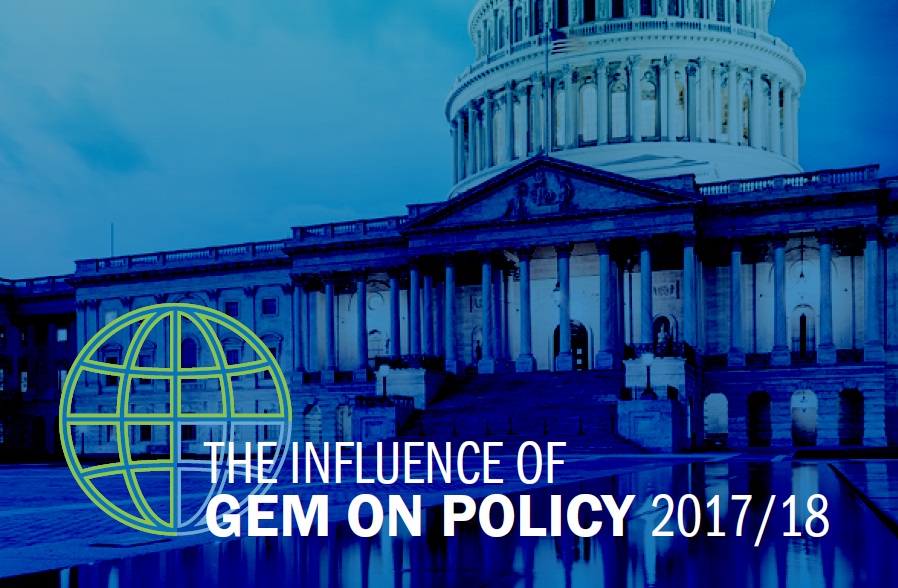The role of entrepreneurship and small businesses in driving economies is widely acknowledged and understood; in 2016, roughly half of all formal jobs worldwide were created by Small and Medium Enterprises (SMEs) according to data from the World Bank.
Less well understood is the role of research in driving wise policy to support and develop entrepreneurs.
DOWNLOAD THE INFLUENCE OF GEM ON POLICY 2017-2018
“GEM’s longitudinal studies and comprehensive analysis of entrepreneurial attitudes and activity across the globe means it can easily claim to be the oldest, largest and most authoritative study of entrepreneurship in the world today. Over the years researchers have compiled a unique data set that allows organisations and policy makers to obtain insights into the entrepreneurial patterns that prevail both in their own country – and around the world,” says GEM Executive Director Mike Herrington. “GEM data is already well used by academics and in the media. We wanted to explore further what has been done with this information. Specifically, has GEM influenced policy in any way?”
The new GEM report analyses 21 countries and unpacks who is using GEM data and how they are using it. One of the factors it looks at is whether GEM information is cited on government and other stakeholders’ websites and whether there are any links - either direct or indirect - between GEM research and government policies.
“The question of how research relates to the policy-making process is not a new one and has led to an emerging body of literature on ‘knowledge utilization’,” says Herrington. “It is almost impossible to state definitively that a research finding has had a direct influence on policy in a country. There are simply too many actors, inputs and variables in the policy making sphere to be sure. However, we were looking for signs that it could have had an indirect influence on policy and we believe we found sufficient such evidence,” he said.
- In Brazil, for example, SEBRAE (Servi.o Brasileiro de Apoio.s Micro e Pequenas Empresas), the main Brazilian institution to support and foster entrepreneurs and small businesses draws on GEM data extensively and GEM terminology and data are quoted in public policy documents;
- In Bulgaria, organisations seeking funding through the EU operational programmes administered by Bulgarian ministries in 2016 relied on GEM data to support their bids;
- In China, the Ministry of Human Resources and Social Security designed the regional entrepreneurial environment evaluation system based on GEM framework and the “TEA” index has been included in the “core index of the national talent development” by the Organization Department of the Central Committee of the CPC;
- In Malaysia, the Ministry of Higher Education (MOHE) used GEM when planning the Strategic Action Plan for Institute of Higher Learning 2016 – 2020 and TERAJU, a government agency used GEM information to promote bumiputera (ethnic Malay) entrepreneurs in their Bumiputera Economic Transformation Roadmap 2.0.
“There is a long list of examples such of these in virtually all participating GEM countries, which show that GEM research is known and used and that it has had an influence on policy decisions that have been taken” says Herrington.

